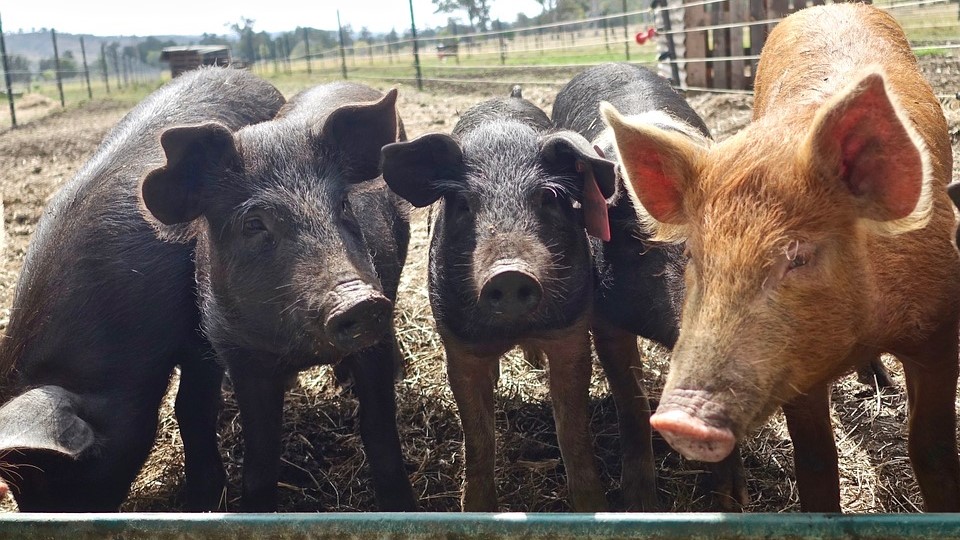
African swine fever (ASF) has long riddled swine herds—first, throughout Africa, where it's endemic, and later Europe, where it's spread since 2007. But in 2018, the viral contagion sank its teeth into Asia, ripping through herds in China and eventually Vietnam. Members across the swine industry mobilized to contain the deadly spread.
While ASF does not affect humans, it is a particularly dangerous disease to national economies and the global food security agenda. Causing extremely high mortality in pigs, an outbreak of ASF in a country effectively bans the trade of its pork products to other markets, due to its status as a transboundary animal disease reportable to the World Organization for Animal Health (OIE).
Vietnam has been hard-hit by the disease, reportedly losing around 20 percent of its pig population due to death or culling activities, leading to vast economic impacts.
Channelling expertise in swine health, the Center for Animal Health and Food Safety (CAHFS) at the University of Minnesota College of Veterinary Medicine joined the containment effort, working with local and international animal health organizations to develop a training program on ASF in Vietnam.
The program will support Vietnam’s Department of Animal Health at the Ministry of Agriculture and Rural Development, and will build the capabilities of Vietnamese veterinarians to control the spread of ASF.
“This project brings regulators, industry, and academia together to tackle the ASF threat in Vietnam,” says Conrad Estrada, area director of the United States Department of Agriculture Animal and Plant Health Inspection Service, International Services in Vietnam, a collaborator on the project. “It lets us learn from the local experts and have a comprehensive approach for international capacity building and domestic preparedness for ASF.”
Global ties
A part of CAHFS’s ProgRESSVet training program, this initiative uses innovative methods for distance learning to increase the capacity of the veterinary services. ProgRESSVet Vietnam includes three interactive eBooks on key topics for controlling ASF: epidemiology and risk assessment, biosecurity and risk management, and planning at the central level. The eBooks are delivered in Vietnamese language and will be undertaken by veterinarians in 2021.
CAHFS’s eLearning team garnered input and collaboration with partners in Vietnam to develop the program’s curriculum and learning materials. Faculty, researchers, residents, and staff worked throughout 2020 to create online education modules based on the center’s robust repository of eLearning resources, adapting them to fit ASF in a Vietnamese context.
The CAHFS team nimbly adjusted to travel restrictions from COVID-19 to connect its broad network of experts and collaborators. The project orbits around expertise from the U of M, Spain, and Vietnam, as well as support from CAHFS's role as a collaborating center of the World Organization for Animal Health (OIE).
Far-reaching impacts of ASF
Foreign animal diseases like ASF do not stop at national borders, and collaborating with veterinarians in Vietnam also supports disease control strategies closer to home.
In addition to ASF surveillance and control, this training program will help US veterinarians—including those at the University of Minnesota— learn about the disease through data collection and analysis, in order to be more prepared in the hypothetical event of a global ASF epidemic.
The project was funded by the US-based Swine Health Information Center, and includes collaborations with the United States Department of Agriculture and the National Pork Producers Council, creating a private-public-academic partnership to deliver the program.
“As ASF continues to sweep through parts of Asia and Europe, this project is providing real-world learning experiences for all involved,” says Liz Wagstrom, chief veterinarian at the National Pork Producers Council. “NPPC’s top priority is to ensure ASF and other foreign animal diseases don’t enter our country, and this project will strengthen our defenses and, if necessary, help us respond effectively to an outbreak.”
See all stories in the November 2020 issue of the CAHFS One to One newsletter

